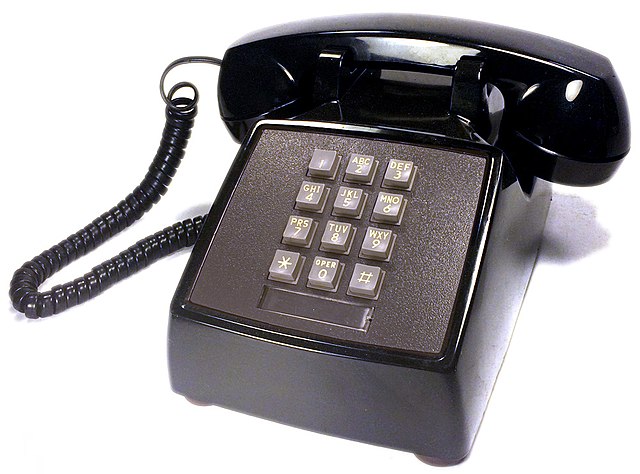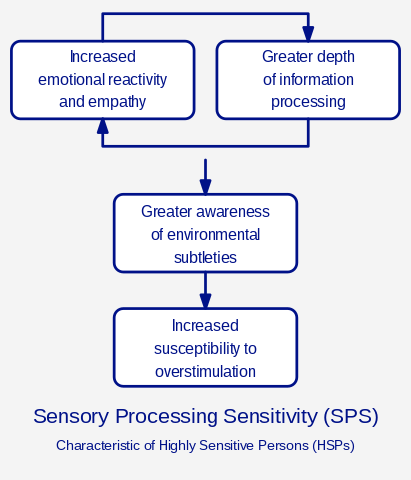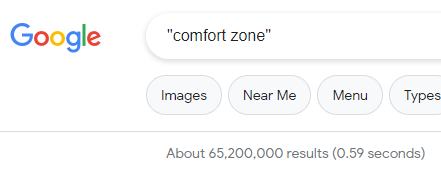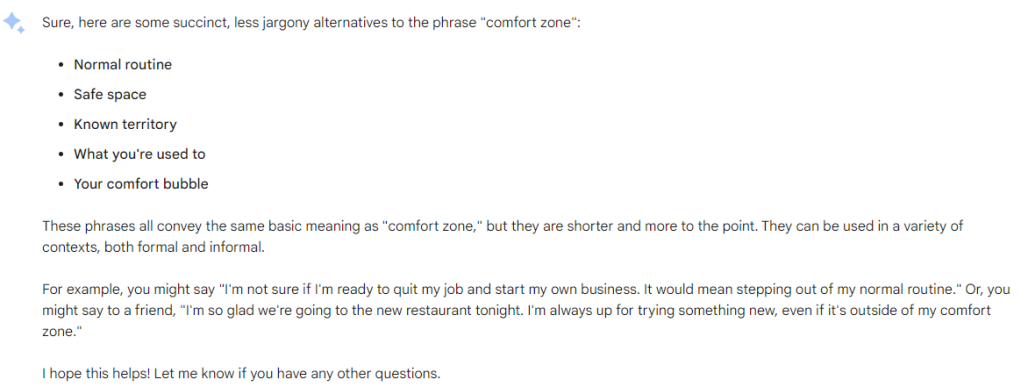I self-describe as a “you can pry my keyboard out of my cold dead hands” person who likes to use physical or virtual keyboards to communicate. But what about using a telephone handset (when used for voice rather than data purposes)? That’s a different matter entirely.

If you have a personality that gravitates away from verbal communication, you sometimes find that you need to get out of your comfort z…I mean, you need to stray from your normal routine and use your non-preferred communication method.
I just did that earlier this week, and refrained from sending an email or other written message, instead choosing to use good old-fashioned voice communications to contact someone. And it worked, showing that voice and written communication do not have to compete with each other, and can complement each other.
This post takes a look at how writers function, both in textual and verbal environments, and what can happen when writers stray from their normal routine (or comfort zone).
The flip side of my written compulsion
I’ve talked before about my compulsion to write. Whether on a piece of paper, a typewriter (yes, I’m that old), a computer, or a smartphone, I am very accustomed to putting words to a text-based medium.

Maybe I’m TOO accustomed to typing words into devices.
- I communicate to a number of different people on WhatsApp, but recently took a break from non-business WhatsApp communications for a few days—probably to the relief of my friends who saw my FREQUENT written comments at ALL hours. (“Not a text from John again…”)
- Which reminds me; I have to ask my younger German daughter if she has returned from her out-of-country trip.
- And I also need to ask my artist friend if she has set up her art room yet…
It may not surprise you to learn that my VERBAL communications are less frequent. While I’m not mute in front of crowds, I gravitate toward written rather than verbal communications when I have the choice.
This preference is not uncommon, and Highly Sensitive Refuge speculates that there is a reason for this.
If you have noticed that it’s easier and more enjoyable for you to write rather than speak out your emotions, thoughts, and experiences, you might be a highly sensitive person (HSP). Highly sensitive people are the roughly 30% of the population who are wired at a brain level to process all information more deeply. This makes them more sensitive to the world around them, both emotionally and physically.
In other words: if you’re a highly sensitive person, you’re experiencing the world very differently than others do. You think more deeply, feel more strongly, and have a lot going on in your head. That can make it hard to get your words out — unless you have the time to sort them out in writing.
From https://highlysensitiverefuge.com/do-you-prefer-writing-to-speaking/

I’m not sure if I am a 100% match to the descriptions above; for example, I believe I have a LESSER awareness to environmental subtleties. However, I certainly tend to be sensitive about some things. (Are my WhatsApp friends tired of my incessant messages?) And you already know that I enjoy the process of working in my brain through drafts 0.5 and 1.0 of a piece of content.
But there are drawbacks to staying within your comfort zone.
Excuse me. Sorry, but there’s something going on in my head that I have to address.
Why I’m tired of the phrase “comfort zone”
I’ve decided that I’m tired of the phrase “comfort zone,” in the same way that I’m tired of “game changer,” “thinking out of the box,” and (shudder) “best of breed.”
There’s nothing inherently wrong with the phrase “comfort zone.” Unlike the other phrases above, the literal meaning does not radically differ from the common usage. But “comfort zone” has reached an oversaturation point.

Now I’ll grant that some of these 65,200,000 search results are non-psychological and refer to air conditioning and other things, but the phrase “comfort zone” is used an awful lot.
I wasn’t sure what would be better. So I asked my buddy Google Bard.

In my view, a couple of these (“safe space,” “your comfort bubble”) are just as bad as “comfort zone,” but “normal routine” and “what you’re used to” are much better and less jargon-y than “comfort zone.”
So I’ll use that instead.
OK now, where we were?
Returning to the flip side of my words obsession
Sorry about that.
But there are drawbacks to straying from your normal routine. Sometimes written communication just doesn’t cut it. (“Doesn’t cut it” is another piece of jargon I should eliminate. But one per post is enough.)
I don’t know how many times I’ve had this exchange with coworkers, friends, and family.
PERSON: Did you resolve the issue with Jane?
ME: I emailed her a couple of days ago but haven’t heard back.
PERSON: Why don’t you pick up the phone and call her?
ME: I’ll email her again. Or maybe I’ll text her.
PERSON: CALL HER!
ME, IRRITATED: OK, I’ll call her!
From a meaningful apocryphal conversation. Not put to music…yet.
When I strayed from my normal routine, good things happened
I thought about this during a recent interchange with one of my Bredemarket clients.
I had emailed a question to the client, and the very busy client said they would get back to me with the answer. After a while, I emailed the client again. And again.
At this point I started to get worried. (Maybe I am sensitive. A bit.)
But before I jumped to the wrong conclusion, I decided that I had better pick up the phone and call the client.
Not that day, but the next day. I mean, you can’t be rash about things like that.
So the next day I did pick up the phone and called the client…but the client wasn’t available.
A few minutes later, I received an email with an explanation for the delay (the busy client had been even busier than usual due to unanticipated circumstances), AND the client provided the answer to my question. Everything was very good.
All solved by a simple phone call.
Maybe I should do this more often.

“Not a phone call from John again…”

1 Comment